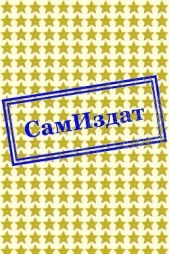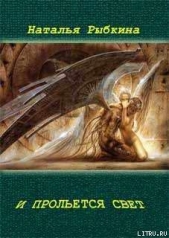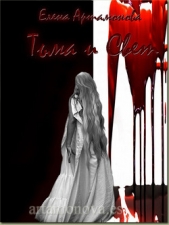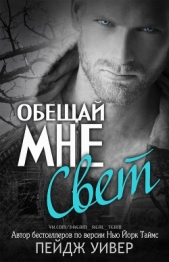На исходе дня. История ночи
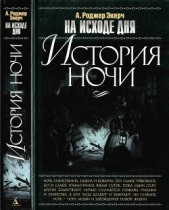
На исходе дня. История ночи читать книгу онлайн
Книга известного американского ученого А. Роджера Экерча "Ha исходе дня. История ночи" перевернула представления человека о темном времени суток. Казалось бы, что может случиться с людьми после заката солнца, когда они отдыхают или спят? Но по убеждению автора, именно ночью происходит много интересного, таинственного и забавного. Ночь — это убежище от обыденности, пора влюбленных, время действий добрых и злых сил. Кто-то отправляется развлекаться на балы и маскарады, кто-то спешит в таверну или кабачок, а кое-кто предпочитает посвящать ночные часы усердной молитве. Под покровом тьмы совершаются и различные преступления — от мелких краж до жестоких убийств. При свете свечей проводят собрания члены тайных обществ и сект. Ночью занимаются сексом, болеют, рассказывают страшные истории, делают записи в дневнике, сочиняют книги, мечтают… Автор подробно описывает ночную жизнь людей разных сословий в странах Европы и Америки в период с XVI и до середины XIX века, когда в мир пришло искусственное освещение, прорезавшее ночную тьму. Наряду с документальными текстами исследователь приводит немало захватывающих, пугающих и комических историй, оставшихся в памяти нескольких поколений.
Внимание! Книга может содержать контент только для совершеннолетних. Для несовершеннолетних чтение данного контента СТРОГО ЗАПРЕЩЕНО! Если в книге присутствует наличие пропаганды ЛГБТ и другого, запрещенного контента - просьба написать на почту [email protected] для удаления материала
17. Niccols, A Winter Night's Vision… (London, 1610), 831; Francis T. Havergal, comp., Herefordshire Words & Phrases… (Walsall, Eng., 1887), 13; Francois Joseph Pahud de Valangin, A Treatise on Diet, or the Management of Human Life… (London, 1768), 275; High Court of Justiciary, Small Papers, Main Series, JC 26/42—43, passim, Scottish Record Office, Edinburgh; JRAI, passim.
18. Laurent Joubert, The Second Part of the Popular Errors, trans. Gregory David de Rocher (Tuscaloosa, Ala., 1995), 280–282. См. также: The Second Lash of Alazono-mastix… (London, 1655), 234.
19. Owen Feltham, Resolves, a Duple Century (1628; rpt. ed., Amsterdam, 1975), 211. См. также: Denham, The Sophy (London, 1642), 20.
20. Camporesi, Fear of Hell, 13; Thomas Dekker, The Gull's Hornbook, ed. R. B. McKerrow (New York, 1971), 23; Jan. 12, 1706, Cowper, Diary; Caufurd Tait Ramage, Ramage in South Italy…, ed. Edith Clay (London, 1965), 6; J. Churton Collins, ed., The Plays & Poems of Robert Greene (Oxford, 1905), II, 249; Angelo Celli, The History of Malaria in the Roman Campagnafrom Ancient Times, ed. Anna Celli-Fraentzel (London, 1933), 130–154.
21. Anglicus, On the Properties of Things, trans. John Trevisa (Oxford, 1975), 1, 540; Thomas Amory, Daily Devotion Assisted and Recommended, in Four Sermons… (London, 1772), 15.
22. Leon Kreitzman, The 24 Hour Society (London, 1999), 90–91; Solomon R. Benatar, "Fatal Asthma," New England Journal of Medicine 314 (1986), 426–427; Sharon A. Sharp, "Biological Rhythms and the Timing of Death," Omega 12 (1981–1982), 17.
23. Hanway, Domestic Happiness… Calculated to Render Servants in General Virtuous and Happy… (London, 1786), 101; Mary J. Dobson, Contours of Death and Disease in Early Modem England (New York, 1997), 247,252; Pounds, Culture, 239,245–246.
24. Anna Brzozowska-Krajka, Polish Traditional Folklore: The Magic of Time (Boulder, Colo, 1998), 115.
25. Francis B. Gummere, "On the Symbolic Use of the Colors Black and White in Germanic Tradition," Haverford College Studies 1 (1889), 116; John Fletcher, The Nightwalker, or the Little Theife (London, 1640); Daniel Defoe, A System of Magick… (London, 1727), 380–381; Normal Cohn, Europe's Inner Demons: An Enquiry Inspired by the Great Witch-Hunt (New York, 1975), 66.
26 C. Scott Dixon, The Reformation and Rural Society: The Parishes of Brandenburg-Ansbach-Kulmbach, 1528–1603 (Cambridge, 1996), 191; Thomas, Religion and the Decline of Magic, 472, 473–477; Nashe, Works, I, 346; George C. Schoolfleld, The German Lyric of the Baroque in English Translation (New York, 1966), 199.
27. Nashe, Works, 1,346,348; Bella Millett and Jocelyn Wogan-Browne, Medieval English Prose for Women: Selections from the Katherine Group and Ancrene Wisse (Oxford, 1990), 91; Jacob Bauthumley, The Light and Dark Sides of God… (London, 1650), 29.
28. Hale, A Collection of Modern Relations of Matter of Fact, Concerning Witches & Witchcraft… (London, 1693), 16,12–13; Thomas, Religion and the Decline of Magic, 472.
29. SAS, XIII, 652; Le Loyer, Specters, fo. 78; July 1, 1712, Donald F. Bond, ed., The Spectator (Oxford, 1965), III, 572; Essex People, 1750–1900. From Their Diaries, Memoirs and Letters (Chelmsford, Eng., 1972), 32.
30. Brand 1777, II, 430–431; A View of London and Westminster: or, the Town Spy, etc. (London, 1725), 1–2; Robert Holland, comp., A Glossary of Words Used in the County of Chester (1886; rpt. ed., Vaduz, Liecht, 1965), 182; Brand 1848, II, 507–512; Minor White Latham, The Elizabethan Fairies: The Fairies of Folklore and the Fairies of Shakespeare (1930; rpt. edn., New York, 1972), 219–262.
31. Georgina F. Jackson, comp., Shropshire Word-Book… (London, 1879), 117; Samuel Butler, Hudibras, the First Part (London, 1663), 19.
32. Mr. Pratt, Gleanings through Wales, Holland, and Westphalia (London, 1798), 142, 136; T. Campbell, Philosophical Survey of the South of Ireland… (London, 1777), 280; Archaeologia: or Miscellaneous Tracts Relating to Antiquity (London, 1814), 144; R. D. Heslop, comp., Northumberland Words… (London, 1892), 1,257; Brand 1777, II, 359.
33. AJ. Gurevich, Categories of Medieval Culture, trans. G. L. Campbell (London, 1985), 107–108; Lewis, Diary, 17; Thomas, Religion and the Decline of Magic, 587–606.
34. Thomas Alfred Spalding, Elizabethan Demonology… (London, 1880), 54; WJ, Nov. 5, 1726; John Holloway, ed., The Oxford Book of Local Verses (Oxford, 1987), 215–216; Cannon, Diary, 134; Jean Claude Schmitt, Ghosts in the Middle Ages: The Living and the Dead in Medieval Society (Chicago, 1998), 185; Nov. 29, 1667, Pepys, Diary, VIII, 553; Brand 1777, II, 430.
35. John Carr, The Stranger in Ireland: or, a Tour in the Southern and Western Parts of that Country in the Year 1805 (1806; rpt. edn., Shannon, Ire., 1970), 264–265; Anne Plumptre, A Narrative of a Three Years' Residence in France… (London, 1810), III, 179; Craftsman (London), May 20, 1732; Dietz, Surgeon, 166–167; Pierre Goubert, The Ancien Regime: French Society 1600–1750, trans. Steve Cox (London, 1973), 280; Caroline Frances Oates, "Trials of Werewolves in the Franche-Comte in the Early Modem Period" (Ph. D. diss., Univ. of London, 1993); Le Loyer, Specters, fo. 101.
36. Scott, Witchcraft, 29; Geert Mak, Amsterdam, trans. Philipp Blom (Cambridge, Mass., 2000), 48; E. S. De Beer, ed. The Correspondence of John Locke (Oxford, 1976), 421–422; Francis Grose, A Provincial Glossary (1787; rpt. edn., Menston, Eng., 1968), 17.
37. Saint Basil, Exegetic Homilies, trans. Sister Agnes Clarke Way (Washington, D. C, 1963), 26; Ellery Leonard, trans., Beowulf (New York, 1939), 8,5; Martha Grace Duncan, "In Slime and Darkness: The Metaphor of Filth in Criminal Justice," Tulane
Law Review 68 (1994), 725–801; James Sharpe, Instruments of Darkness: Witchcraft in England, 1550–1750 (New York, 1996), 15; Cavendish, Powers of Evil, 87, 96–97; Cohn, Europe's Inner Demons, 207–210.
38. Muchembled, "La Nuit sous l'Ancien Regime," 239–241; Schmitt, Ghosts in the Middle Ages, 177; Thomas, Religion and the Decline of Magic, 455; Harris, Night's Black Agents, 25–26, 33; Nancy Cadola, "Wraiths, Revenants and Ritual in Medieval Culture," PP152 (1996), 3—45; Pierre Jonin, "L'Espace et le Temps de la Nuit dans les Romans de Chretien de Troyes," Melanges de Langue et de Litterature Medievals Offerts a Alice Planche 48 (1984), 235–246.
39. Cohn, Europe's Inner Demons, 71–74, 97,100–101; Lynn A Martin, Alcohol, Sex, and Gender in Late Medieval and Early Modern Europe (New York, 2001), 79; Thomas, Religion and the Decline of Magic, 454–456.
40. G. R. Quaife, Wanton Wenches and Wayward Wives: Peasants and Illicit Sex in Early Seventeenth Century England (London, 1979), 31; S. Taylor, "Daily Life — and Death — in 17th Century Lamplugh," Transactions of the Cumberland & Westmorland Antiquarian & Archaeological Society, New Sen 44 (1945), 138–141; Thomas, Religion and the Decline of Magic, 455–461,498—499.
41. Cohn, Inner Demons, 105; VG, Aug. 19,1737; Christina Lamer, Enemies of God: The Witch-Hunt in Scotland (Baltimore, 1981), 22–25; Robin Briggs, "Witchcraft and Popular Mentality in Lorraine, 1580–1630," in Brian Vickers, ed., Occult and Scientific Mentalities in the Renaissance (Cambridge, 1984), 346–347; Thomas, Religion and the Decline of Magic, 560–569.
